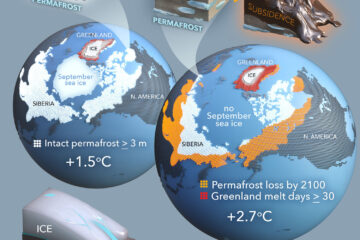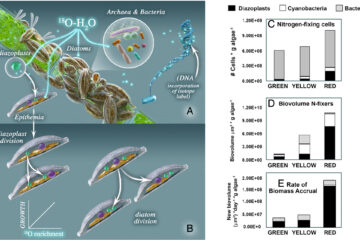Warming induced changes in soil carbon and nitrogen influence priming responses in four ecosystems
Soil contains the largest terrestrial pool of carbon (C), but how this pool will be affected by global change remains unknown. Warmer temperatures generally increase soil respiration, while additional C inputs from plants to soil can increase or decrease soil C decomposition rates through a phenomenon known as priming. Priming occurs when soil organic matter (SOM) decomposition rates change in response to a fresh substrate, though the mechanisms underlying priming are poorly understood. Here, we measured priming in four ecosystems during a seven-week incubation with weekly glucose additions. Soil was collected from field warming experiments in the four ecosystems, so our experiment assessed the influence of long-term warming on priming. All treatments exhibited negative priming (reduced SOM decomposition) after the first substrate pulse. Subsequent substrate pulses elicited variable responses, and the effect of long-term warming on priming was ecosystem-dependent. Priming was correlated with changes in soil C and N in response to warming: ecosystems that lost soil C and N over nine years of experimental warming exhibited low rates of priming (decreased SOM decomposition), while ecosystems that gained soil C and N in response to warming had high priming. Consequently, priming may accelerate C losses in ecosystems that exhibit warming-induced C increases, and vice versa, thus partially buffering soil C content against change.


